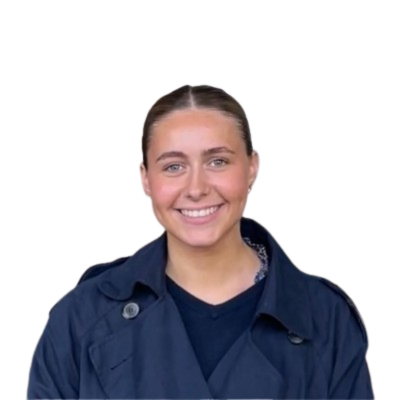Your Ultimate Guide: A Non-EU Student's Roadmap to Albert School Milan

Visa Made Simple
So, you’ve been accepted to Albert School Milan—congratulations! Get ready for exciting classes, aperitivo culture, and the hustle of Italy’s most dynamic city. But before you pack your bags and hop on a plane, there’s one essential step to take care of: your Italian student visa.
If you're a Non-EU citizen, this is your golden ticket to study and live in Italy legally. We know the process can seem intimidating at first, but don’t stress—we’ve got your back. Follow this step-by-step guide to make the visa application process smooth, stress-free, and successful.
We’ve also put together a detailed downloadable guide that includes document templates, embassy links, and pro tips—grab it here.
But if you’re just getting started, read on. Let’s walk you through everything you need to do.
Understand What a Student Visa is and Why You Need It
Start by understanding your situation. As a Non-EU student, you're required to obtain a long-stay student visa (Type D) to enter and stay in Italy for more than 90 days. This visa is issued by the Italian consulate or embassy in your home country and is specific to full-time study.
Don’t wait until the last minute—visa processes take time, and delays can cost you more than just a headache. Once you receive your official admission letter from Albert School, start preparing your documents immediately.
Find Your Local Italian Consulate or Embassy
Look up the Italian consulate or embassy responsible for your region. You must apply through the Italian representation that covers your place of legal residence—not where you study or temporarily live.
Head to the Italian Ministry of Foreign Affairs website or Google “Italian consulate + [your city or country]” to find the right office. Check their website carefully—they often have specific instructions, document checklists, and online booking systems.
Book Your Visa Appointment Early
Don’t delay—appointments can fill up quickly, especially in peak periods (spring and summer). As soon as you know where you’ll apply, book your visa appointment. Some consulates accept bookings by phone or email, while others only use an online portal. Whatever the system, treat this as a high priority. Without an appointment, you won’t be able to submit your application—and that could delay your arrival in Milan.
Good news: Once you're officially admitted to Albert School, we’ll put you in contact with one of our trusted partner agencies. They’ll support you throughout the entire process—not just for your student visa, but also for obtaining your Permesso di Soggiorno (residence permit) once you arrive in Italy. Having expert guidance can make the process smoother and save you valuable time.
Gather All Required Documents
Now comes the paperwork. Here’s a general list of what you’ll likely need—but remember, requirements can vary slightly by country or consulate, so always double-check their specific list.
Essential Documents:
- - Visa application form (downloadable from our guide)
- - Passport valid for at least 3 months beyond your planned stay, with at least 2 blank pages
- - Passport-sized photos (usually 2, recent, and on a white background)
- - Official letter of admission from Albert School Milan
- - Proof of financial means (bank statements, sponsor letter, or scholarship award proving you can support yourself)
- - Proof of accommodation in Italy (rental contract, university housing confirmation, or host declaration)
- - Health insurance valid in Italy for at least the first year of your stay (check once again our guide for details)
- - Flight booking or travel itinerary (some consulates require this, others don’t)
- - Visa application fee (varies by country, usually payable in cash or via bank draft)
Make clean, organized copies of every document and bring the originals with you. Some consulates might also ask for translations into Italian—check if that applies to you.
Attend Your Visa Appointment
Show up on time, dress neatly, and bring all your documents in the order requested. Be polite and clear with your answers. This is usually not a long interview—it’s more about document submission than grilling you about your life.
Still, be prepared to answer simple questions like:
- - Why are you going to Italy?
- - What will you study?
- - How will you pay for your living expenses?
Once your documents are accepted, you’ll be asked to leave your passport with the consulate. Processing times vary, but it can take 2 to 6 weeks depending on your country and the time of year.
Pick Up Your Visa and Check It Carefully
Once your visa is approved, you’ll either be notified to pick it up or it will be mailed to you. When you receive your passport, check the visa sticker carefully. Confirm that:
- - Your name is spelled correctly
- - The dates match your intended stay
- - The visa type says “D” for study
If there’s an error, notify the consulate immediately.
Pack These Essentials for Arrival
Don’t forget to bring printed copies of all your visa documents, as you might be asked to show them at the Italian border.
Pack these in your carry-on:
- - Passport with student visa
- - Admission letter from Albert School
- - Proof of accommodation
- - Proof of health insurance
- - Any residence permit-related documents
Stay calm at immigration—most students are simply waved through. But be ready, just in case they ask for confirmation.
Final Thoughts
Yes, getting a student visa takes some effort—but it’s worth it. By following this guide and staying organized, you’ll be on your way to joining Albert School Milan with confidence and clarity.
Use this blog post as your launchpad, and grab the full guide when you're ready for a deeper dive.
You’ve got this—and we can’t wait to welcome you to Milan soon!
Hear from our students about their amazing journeys and achievements

At Albert School, the student council fosters community and learning through events. By bringing students together, we enhance campus life and create connections, contributing to develop new soft skills.
Sulian
Bachelor in Business, Data, & AI
Bachelor Business, Data, & AI
Paris

What I like best about Albert School is how the professors foster our ambition and encourage us to have an entrepreneurial mindset!
Prisca
International BBA Business, Data, & AI - General Secretary of the Student Council
International BBA Business, Data, & AI
.png)
“The Business Deep Dives pushed me to grow beyond what I thought possible—turning lessons into real-world experience alongside inspiring companies.”
Samuel
International BBA Business, Data, & AI - Samuel, Student from Rwanda
International BBA Business, Data, & AI
